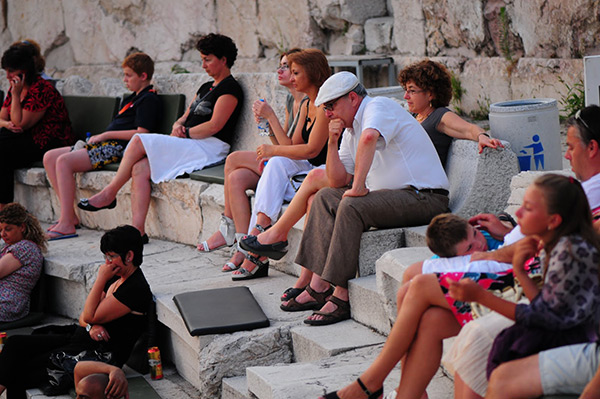Shared Past/Contested Heritage
Bulgaria | June 28-July 11, 2021
For much of their histories, the countries that today make up the Balkan Peninsula have shared a past; certainly of religion (or rather religions), usually of empire, often of conflict, always of migration, and just as constantly of trade, tastes in food (and drink), as well as of folk practices. Different ancestors—Thracians, Scythians, Romans, Greeks, Illyrians, proto-Bulgars, Vlacs, Slavs, and so on—all contributed to a mix of peoples and practices that, for all their differences, nevertheless present a recognizable cultural form; at least to outsiders. Not only a cultural form, but a grammatical substantive: “balkanization”.
Different empires—from the Macedonian, Byzantine, and Ottoman, through the Austro-Hungarian, and Soviet of the 20th century—sought to impose political unity on a geographic area of religious, cultural, linguistic, and ethno-national heterogeneity. The shattering of the Austro-Hungarian and Ottoman Empires at the end of WWI and consequent rise of nation-states; the fall of the Soviet Union in 1989; the breakup of Yugoslavia and consequent wars of 1992-1995; the wars in Kosovo and the recent ascent of North Macedonia to the status of a recognized national entity have all however exacerbated the contested rather than shared aspects of the region’s past. So, for example, Northern Macedonian ascension to the European Union is currently dependent on the construction of a consensual historical narrative agreed upon by both Northern Macedonia and Bulgaria, with Greece remains a skeptical negotiating partner.
The BSSRPL will explore the continuing contestations of Balkan politics and social life within the broader context of shared religious, cultural, and ethnic histories. It is our hope that the insights generated by this inquiry will prove relevant for a much broader set of cases such as; Israel and Palestine, Armenia and Azerbaijan, Uzbekistan and Kyrgyzstan, the border areas of DRC/Rwanda/Uganda, and elsewhere.
The 2021 BSSRPL will thus convene an engaging two-week experiential school aimed at understanding the dynamics of contested pasts in the making of our shared future. Over the course of the program, we will focus our attention on how ethnic, religious, and national differences have led to different and contrasting historical narratives. Listening to the voice of our “others” will allow participants to appreciate the challenge of a newly confrontational politics of citizenship and the necessity of difference in living together.
The BSSRPL is an affiliate of CEDAR, whose programs combine pluralistic perspectives on religious thought with social scientific research on tolerance and civil society, and an open, dialogic, approach to pedagogic practice. Its goal is to transform both the theoretical models and concrete practices through which religious orientations and secular models of politics and society engage one another. As with other CEDAR affiliates, the BSSRPL program combines academic courses with intensive group-building processes and the construction of working relationships across religious and ethnic identities. Its didactic goals are both social and cognitive.
Questions should be sent to [email protected].
The BSSRPL is a CEDAR affiliate program working in collaboration with Plovdiv University.
All fellows in the BSSRPL will need to cover their travel expenses to and from Bulgaria.
PLEASE NOTE: The BSSRPL will proceed with all possible COVID-19 health precautions in place. If in June the situation worsens and demands a reassessment of our plans, you will be informed. In any case, please consult the Bulgarian Ministry of Foreign Affairs website or that of your local embassy in Bulgaria to keep abreast of what may be a fluid situation.









